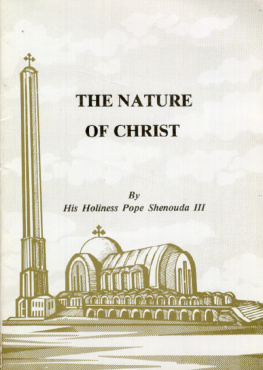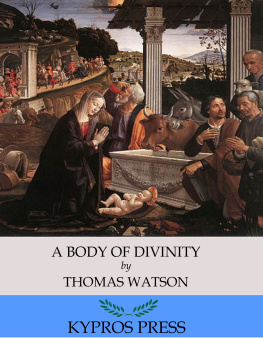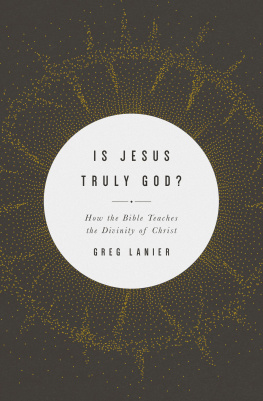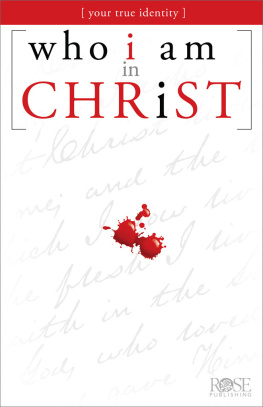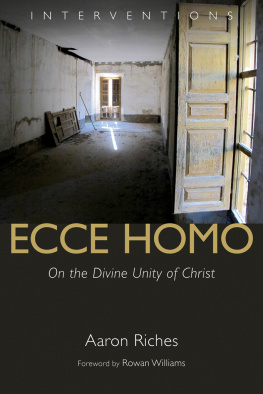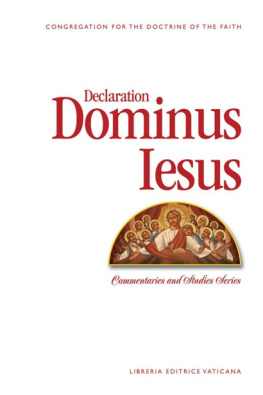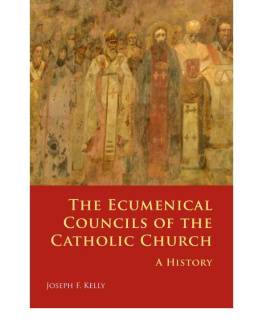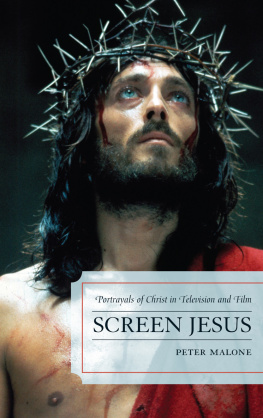
The
Divinity of Christ
By
H.H. Pope Shenouda III
Translated by
Mary & Amani Bassilli
First Edition Volume I C 0 P A

Published by
Coptic Orthodox Publishers Association
50 Netherford Road
London SW4 6AE
Tel: 01-622 0166
Copyright the Author, 1989
ISBN 1 871646 01 4


H.H. Pope Shenouda III, 117th Pope of
Alexandria and the See of St. Mark
Contents
The Divinity of Christ with Respect to Him Being One of the Holy Trinity
The Divinity of Christ with Respect to His Divine Attributes
The Divinity of Christ with Respect to His Absolute Authority

INTRODUCTION
The Divinity of Christ
The Divinity of Christ is one of the most important and vital subjects in the Christian doctrine. Many heresies rose against it in various eras, and the Church confronted them and replied to them. The most dangerous was the Arian Heresy which reached its peak in the fourth century and led to many Ecumenical Councils being held. The first Ecumenical Council in history was held in 325 A.D., attended by 318 bishops from all the churches of the world. Arius and his heresy were refuted, and the Christian Creed was formulated. Nevertheless, the residues of Arianism have continued to spread even till this day.
Many atheist philosophers and scientists rose against the Divinity of Christ. The heresy of Jehovah's Witnesses rose against the Divinity of Christ. It was allegedly founded, in Pennsylvania, America, in 1872. Then in 1909 its headquarters moved to New York where a community was established under the name of "Watch Tower Bible and Tract Society". They published many books, the most important of which were: LetGod Be True, The Truth Shall Set You Free, The Harp of God, The Rich Man, Deliverance, Creation, The New Heaven and the New Earth, Government and Peace, Protection, Reconciliation, and various other publications called Tracts.
In the following pages, we will try to discuss the subject of the Divinity of Christ in a positive light, and prove this fundamental doctrine from the Holy Bible. We will discuss all the objections and reply to them in due course.
Many of the saints faced these objections and were contemporary with the Arian Movement. Among them were:
(1) Saint Athanasius the Apostolic who wrote ContraArianos,
(2) Saint Hilary, Bishop of Poitiers who wrote a treatise against the Arians called De Trinitate,
(3) Saint Basil the Great,
(4) Saint Gregory, Bishop of Nyssa,
(5) Saint Gregory Theologus of Nazianzum who wrote theological treatises and
(6) Saint Cyril of Jerusalem who delivered lectures to the catechumens.
In our research on the Divinity of Christ, we will give proofs which will include clear verses pertaining to His Divinity with respect to:
(1) Him being the Logos (the Word)
(2) His relation with the Holy Spirit
(3) His relation with Heaven
(4) His relation with the Father
(5) Him being the Only Son
(6) Him being the Only Son of God
(7) Him being the Lord
(8) Him being the Redeemer and Saviour
(9) The belief in Him
(10) His Divine qualities
(11) His authority over all Creation
(12) His miracles
I began this research in July 1953 when I published the first article against Jehovah's Witnesses in the Sunday School Magazine, then in consecutive articles during 1953 / 54. I taught it as a subject in the Theological Seminary during 1954 and also in the 1960s when I was bishop of the Seminary. I replied to many questions pertaining to this subject in general lectures. And finally, I thought it fit to publish it as a subject of study to be taught in the various departments of our Theological Seminary.

THE FIRST PROOF
Explicit Verses on the Divinity of Christ
This proof consists of the following:
(A) Proof that the Lord Jesus Christ is God
(B) Proof that there is only One God, that is, God
(C) Conclusion: Christ is This One God, that is, He is God
(A)Christ Is God
(1) (Rom. 9:5): St. Paul the Apostle said in his discourse about the Jews: "and from whom, according to the flesh,Christ came, who is over all, the eternally blessed God. Amen." The phrase 'over all ' gives power to Christ's Divinity; He is not God of certain people only, as the pagan gods are. The expression 'eternally' signifies the continuity of His worship and the infinity of His Divinity.
(2) (John 20:28): When Thomas said to the Lord: "MyLord and my God!", the Lord Jesus Christ accepted the title and reproached Thomas for believing only after seeing when he should have believed without seeing.
(3) (John 1:1): "In the beginning was the Word, and theWord was with God, and the Word was God." Although Jehovah's Witnesses, in their heterodoxy, say: "and the Word was a God", yet they do not deny the Divinity of Christ and consider Him second to Jehovah. In order not to enter into translation controversies with them, we say that their mere belief that He is a God leads to the fact that He is God, because there is only One God.
(4) (Matt. 1:23): The angel was referring to Isaiah's prophecy: "'Behold, a virgin shall be with child, and bear aSon, and they shall call His name Immanuel" which is translated, 'God with us"' (Is. 7:14). The fact that Christ is 'God with us' is an obvious profession of His Divinity. That is why the prophet Isaiah explains this meaning when he says:
(5) (Is. 9:6): "For unto us a Child is born, unto us a Son isgiven; and the government will be upon His shoulder. And His name will be called Wonderful, Counsellor, Mighty God, Everlasting Father, Prince of Peace". It is probably the phrase 'Mighty God' in this verse that has made Jehovah's Witnesses say that Christ is a Mighty God, although in their opinion, He is not God. Strangely enough, this verse is from the Book of Isaiah in which the clauses: "I am the Lord and there is noother; there is no God besides Me", are repeated many times (Is. 45:5,6,21,22).
(6) (Heb. 1:7,8): When St. Paul the Apostle explained how the Lord Jesus Christ is greater than the angels, he said: "Andof the angels He says: 'Who makes His angels spirits and His ministers a flame of fire. 'But to the Son He says: 'Your throne, 0 God, is for ever and ever. St. Paul quoted this verse from Psalm 45, verse 6, where the reference to the Divinity of Christ is very clear.
(7) (1 Tim. 3:16): "And without controversy great is themystery of godliness: God was manifested in the flesh, justified in the Spirit, seen by angels, preached among the Gentiles, believed on in the world, received up in glory. " It is obvious, from this verse, that Christ is God who was manifested in the flesh. But the heresy of Jehovah's Witnesses presents another translation: "Great is the mystery of godliness which was manifested in the flesh", which is incompatible with the continuation of the same verse. Because how could the mystery of godliness be seen by angels? Or how was it received up in glory? Was it not Christ who was seen by angels, ascended to heaven in glory, preached among the Gentiles and believed in the world? However, the theological facts are not based upon one verse: (1 Tim. 3:16) is similar to another verse:
Next page

